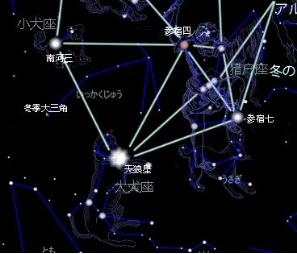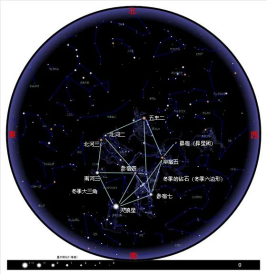In the cold crystal winter night sky, in the sparkling various stars, Orion’s 7stars are shining bright and clear.
Orion, one of the equatorial constellations, is known as the “King of the Constellations”. The main body is a large quadrilateral composed of two first-magnitude stars and five second-magnitude stars. The best month for observation is January.
There are three stars on Orion’s belt, which are the so-called “Fu Lu Shou”, the triple star, in China. A bright first-magnitude star can be found along the lower left of the triple star. The bluish-white star with an apparent magnitude of -1.4 is Sirius. This star is the nose of a hound, the hound carried by Orion, Canis Major.
In addition to Sirius, there are Procyon, Pollux, Capella, Aldebaran, and Betelgeuse among the first-class stars twinkling in the winter starry sky. Connecting these first-class stars will form a bright hexagon. The winter hexagon is called the diamond of winter, and it is a very beautiful arrangement.
The series of star trackers produced by TYspace not only have excellent anti-stray light suppression ability, but also can observe most constellation positions in the starry sky over a sensitive magnitude of 5.8. Let’s appreciate the vastness of the starry sky in this silent winter night.



